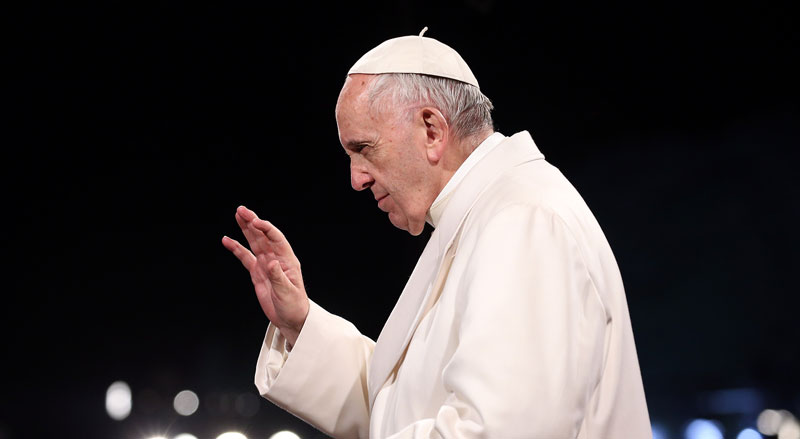There are few locations in the Middle East that excite fiercer debate than the Jewish community of Hebron. The issue bubbles to a scalding heat whenever atrocities, such as that which occurred on Prayers Walk on Nov. 13, rip into the heart of the community.
Hebron is all too well acquainted with such scenes. As the location of repeated massacres, pogroms and unending hatred, Hebron has existed for 80 years as a symbol of the obdurate struggle between Arabs and Jews over territory .
While today the hatred between Jews and Arabs may be palpable, it wasn’t always that way. Once Jews and Arabs in Hebron lived side by side in relative peace.
Prior to 1929, the Jewish community, while usually a minority, maintained good relations with the Arab townsfolk, their children playing with Arab children, their mothers shopping at the open market alongside Arab women. That was until an explosion of violence rocked the city and ignited a catastrophe from which the town has never recovered.
On the night of Aug. 23, 1929, the Arabs of Hebron, incited by their leaders to believe the Al Aqsa Mosque in Jerusalem had been attacked by Jews, rampaged through the Jewish Quarter, slitting the throat or hacking to death any Jew they encountered — man , woman or child. Doors of Jewish homes and shops were broken down and children were slaughtered in their sleep.
At the end of this three-day orgy of violence, 67 Jews were dead, 69 wounded and Jewish property ransacked. Among the dead was Eliezer Dan Slonim, the town’s banker, the recognized leader of the community and a great friend to many of the Arab leaders.
The Arabs of Hebron may have murdered the Jews and plundered their property, but how the British Mandate authorities reacted added malice to outrage.
As violence spread, British policemen watched impassively and did nothing. Three boys who escaped from Slonim’s house, ran shrieking to a mounted British policeman, grasping the horse’s mane and pleading with the officer to rescue the 25 people barricaded inside the house. The policeman violently shook them off and rode away, leaving the boys to be butchered by the advancing mob.
Pierre Van Passen, a Dutch prelate, reported what he found in Slonim’s house after the attack: "What occurred in the upper chambers of Slonim’s house could be seen when we found the 12-foot-high ceiling splashed with blood. The rooms looked like a slaughterhouse."
"When I visited the place in the company of Capt. Marek Schwartz, a former Austrian artillery officer, the blood stood in a huge pool on the slightly sagging stone floor of the house," Van Passen said. "We stood silently contemplating the scene of slaughter, when the door was suddenly flung open by a British soldier."
"In strolled Mr. Keith Roach, governor of the Jaffa district, followed by a colonel of the Green Howards Battalion of the King’s African Rifles," the prelate continued. "They took a hasty glance around that awful room, and Mr. Roach remarked to his companion, ‘Shall we have lunch now or drive to Jerusalem first?’"
This indifference to Jewish death almost immediately became a matter of policy. The determinedly anti-Zionist British Mandate authorities had decided that Jewish expansionism was a provocation to Palestinian Arabs and had to be halted.
What better demonstration of their seriousness than removing the ancient community entirely? While many Jews were evacuated in 1929, seven years later, the entire community was ousted when new riots shook the town. No Jew lived in Hebron until 1971.
The events of 73 years ago should instruct us today. Because while once again the Jewish community in Hebron is looked upon as a provocation, the true cause of instability in the region remains entirely overlooked.
The Arabs who perpetrate massacres are rarely held accountable for their acts of inhumanity. In 1929, no action was taken against Hebron’s Muslim leaders who allowed the rioters to rain death on the Jewish community.
Today, the role of the British authorities has been adopted by the media. Most of the foreign media received the latest attack with a shrug, viewing it as a natural outcome of Israeli domination and provocation.
Yet it should be as plain as day that Jews are being targeted for slaughter no matter where they live. The recent attack on Kibbutz Metzer, a community within the Green Line and one of the most avowedly supportive communities for Palestinian causes, underlines the randomness of the terrorist campaign.
In that community, a mother and her 4- and 5-year-old sons were shot to death while sleeping in their beds. The attack was greeted with wild celebration in Gaza and the West Bank. What other conclusion can be reached after such a heinous attack but that there is no solution satisfactory to Palestinians, short of the liquidation of Israel and its replacement with a 23rd Arab state?
So if questions hang over Hebron today, they are the same ones that shadow the rest of Israel. They do not concern settlements or the Jews of Hebron, they deal with how to control the Arab resort to violence and the means of challenging a world seemingly indifferent to the murder of Jews.
Where, we might ask, is world outrage that a specious document, fabricated a century ago, is now the basis for an Egyptian "documentary" on the history of the Arab-Israel conflict? Where is the condemnation of Holocaust denial and the vitriolic anti-Semitism that pulsates through the Arab street and is unashamedly encouraged by Arab governments?
The failure to remonstrate against indiscriminate murder is a telling sign of moral weakness. But the failure to recognize incitement as the root cause of the conflict may well be a symptom of the latent anti-Semitism that has recently percolated into the consciousness of so many Western democracies.
In the end, the long history of Hebron teaches us that it is possible for Arabs and Jews, united by common interests, to live in peace. But let it be a lesson to the world. This can never occur when Arab religious and political leaders exhort their people to break down the doors of Jewish homes and massacre innocent Jewish children while they sleep.
Avi Davis is the senior fellow of the Freeman Center for Strategic Studies
and the senior editorial columnist for the online magazine,
Jewsweek.com.






















 More news and opinions than at a Shabbat dinner, right in your inbox.
More news and opinions than at a Shabbat dinner, right in your inbox.